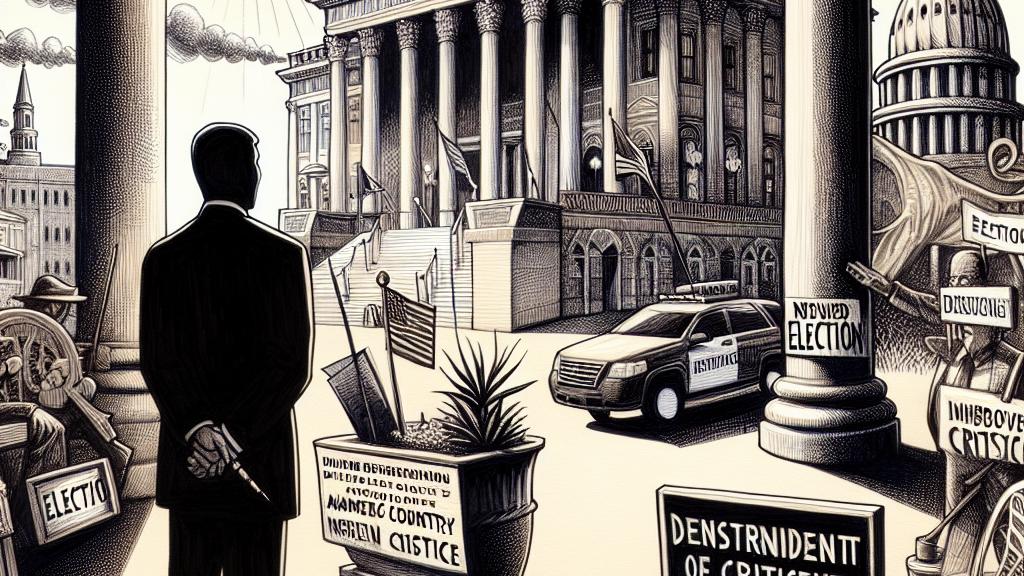Zelenskyy's Diplomatic Visit Amidst Rising Partisan Tensions Over Ukraine War
Overview
- Zelenskyy's pivotal Washington visit reveals a profound U.S. partisan divide over support for Ukraine.
- Trump's sharp criticism introduces significant obstacles for Zelenskyy's diplomatic mission.
- The uncertain fate of U.S. military aid raises urgent questions for Ukraine’s future defense.

Context of the Visit
On September 26, 2024, Ukrainian President Volodymyr Zelenskyy undertook a strategically vital visit to Washington, D.C., where the Ukraine war against Russia hangs heavily over the proceedings. This visit is far from routine; it represents an urgent attempt to secure critical U.S. support during a tumultuous election season marked by deepening partisan divides. President Biden greeted Zelenskyy warmly, reinforcing a commitment to military assistance, yet the shadows of former President Trump's scathing critiques loom large, prompting concerns about the future of U.S. aid. With bipartisan agreement on Ukraine's fight fading, Zelenskyy’s efforts are more crucial than ever to ensure continued American backing.
Partisan Divides and Criticism
The political discourse surrounding this visit has devolved into a battleground where ideological battles overshadow strategic considerations. Trump's remarks, criticizing Zelenskyy, underscore a growing skepticism among right-wing politicians, who argue that support should hinge on negotiations for peace. This sentiment reflects a broader fear that U.S. funds are being allocated without adequate oversight or measurable progress towards resolving the conflict. For instance, in a pointed statement, Trump lamented, 'We're aiding a leader who won't even attempt a peace deal,' illustrating how his rhetoric is increasingly setting the tone for an opposition that is less than enthusiastic about prolonging financial and military aid. As a result, Zelenskyy is not only fighting for his nation's sovereignty but is also grappling with the complexities of U.S. domestic politics that threaten the vital support needed to fend off Russian advances.
Implications for Ukraine's Future
Navigating this precarious political landscape poses significant challenges for Zelenskyy as he seeks to articulate a clear vision for Ukraine’s future. His mission is explicit: advocating for both immediate and long-term military support to restore Ukraine's territorial integrity while addressing the concerns of skeptical American lawmakers. With past aid packages—including substantial contributions that provided advanced military hardware like anti-aircraft systems—serving as a reminder of what collaboration was possible, the current political environment feels more uncertain than ever. As Zelenskyy stands at the crossroads of diplomacy and war, the stakes could not be higher; the very foundation of U.S. support, previously taken for granted, is hanging by a thread. The time for clarity and unity in response to Russian aggression has never been more urgent, as the consequences of inaction resonate not only for Ukraine but for the security of the entire region.

Loading...